Following the board’s decision to adopt a housing microfinance program, we began looking for local consultants to undertake a market research study. The market research was conducted in the districts of Bagamoyo, Kibaha and Morogoro and the three municipalities of Dar es Salaam (Kinondoni, Ilala and Temeke). We wanted to stay close to our head office (located in Dar es Salaam) to improve our ability to monitor and support the initial pilot while minimizing costs. The study looked at the financial landscape as well as the housing environment and used focus group discussion as well as individual interviews.
The market research helped define the prototype product features  of a home improvement loan product. We determined that the product (and ultimately the program) would be called MAKAZI BORA, meaning roughly “better houses” in Kiswahili. We conducted prototype testing of the MAKAZI BORA product with focus groups in various locations. The focus groups discussed the product features and also gave feedback on a number of logo designs. Some minor adjustments were made to the product.
of a home improvement loan product. We determined that the product (and ultimately the program) would be called MAKAZI BORA, meaning roughly “better houses” in Kiswahili. We conducted prototype testing of the MAKAZI BORA product with focus groups in various locations. The focus groups discussed the product features and also gave feedback on a number of logo designs. Some minor adjustments were made to the product.
We determined that we would implement MAKAZI BORA within Dar es Salaam and began to look for suitable areas for piloting the loan product. We used Google Earth to look at settlement patterns and studied public transport routes to determine accessibility of various potential sites. We chose Mbagala in Temeke Municipality of Dar es Salaam as our pilot area. Mbagala has some dense and established informal settlements, informal settlements that are rapidly expanding as well as urban fringe that has new construction taking place in an essentially rural environment. The office was chosen at Rangi 3, which allows for close access to public transport from all around the area as well as easy access to banking services. Our operating area was defined as 5 wards in the Mbagala Division: Mbagala, Mbagala Kuu, Charambe, Chamazi and Tuangoma. The office would be called: Mbagala Branch.
Mbagala has some dense and established informal settlements, informal settlements that are rapidly expanding as well as urban fringe that has new construction taking place in an essentially rural environment. The office was chosen at Rangi 3, which allows for close access to public transport from all around the area as well as easy access to banking services. Our operating area was defined as 5 wards in the Mbagala Division: Mbagala, Mbagala Kuu, Charambe, Chamazi and Tuangoma. The office would be called: Mbagala Branch.
 of a home improvement loan product. We determined that the product (and ultimately the program) would be called MAKAZI BORA, meaning roughly “better houses” in Kiswahili. We conducted prototype testing of the MAKAZI BORA product with focus groups in various locations. The focus groups discussed the product features and also gave feedback on a number of logo designs. Some minor adjustments were made to the product.
of a home improvement loan product. We determined that the product (and ultimately the program) would be called MAKAZI BORA, meaning roughly “better houses” in Kiswahili. We conducted prototype testing of the MAKAZI BORA product with focus groups in various locations. The focus groups discussed the product features and also gave feedback on a number of logo designs. Some minor adjustments were made to the product.We determined that we would implement MAKAZI BORA within Dar es Salaam and began to look for suitable areas for piloting the loan product. We used Google Earth to look at settlement patterns and studied public transport routes to determine accessibility of various potential sites. We chose Mbagala in Temeke Municipality of Dar es Salaam as our pilot area.
 Mbagala has some dense and established informal settlements, informal settlements that are rapidly expanding as well as urban fringe that has new construction taking place in an essentially rural environment. The office was chosen at Rangi 3, which allows for close access to public transport from all around the area as well as easy access to banking services. Our operating area was defined as 5 wards in the Mbagala Division: Mbagala, Mbagala Kuu, Charambe, Chamazi and Tuangoma. The office would be called: Mbagala Branch.
Mbagala has some dense and established informal settlements, informal settlements that are rapidly expanding as well as urban fringe that has new construction taking place in an essentially rural environment. The office was chosen at Rangi 3, which allows for close access to public transport from all around the area as well as easy access to banking services. Our operating area was defined as 5 wards in the Mbagala Division: Mbagala, Mbagala Kuu, Charambe, Chamazi and Tuangoma. The office would be called: Mbagala Branch.We were fortunate to have Fayaz Jaffer to assist us a volunteer. Fayaz works for Ernest and Young in the USA and was visiting his family in Tanzania. He had wanted to volunteer to build houses, which is the activity for which Habitat is known. When we told him that we were no longer constructing and shifting to a housing microfinance program model, he took interest and said he could help us with some process mapping. Mapping out the process through which a client would pass in order to receive and pay back a loan was a critical step in developing or processes, forms, policies and job descriptions. It helped clarify what had been more of a collection of loose ideas.
With the product, process and draft forms, we used Microfin software to create financial projections for a business plan. We soon realized that a business plan was based on a lot of assumptions; how many loans a credit officer can disburse per month, what an optimum case loan of clients would be, average loan size and other assumptions. We used 10 loans disbursed per credit officer per month, an optimal case load of 240 clients and an average loan amount of 750,000 shillings. Boaz (Boaz Ackim, Program Manager) thought that 10 clients per month was conservative and was leaning more towards 15. I thought it was aggressive and thought in reality it might be 7 or 8 on average. We completed the business plan realizing that our assumptions will most likely change once we get started and have experience on the ground. We made it an internal business plan to be approved by the board so that we could get started with funds available, but we will have to revise the business plan with stronger financial projections prior to presenting it to institutions from which we will seek capital.
The board was to meet and approve the business plan on 29th April 2009. Ordinance was accidently detonated as a result of a fire at a military base (in Mbagala) and the city was rocked by explosions that very day. The meeting was cancelled and could not be held again until 22nd May, when the business plan was approved. In the meantime, we had already begun work on designing training for credit officers and started the recruitment process on the assumption that the plan would be approved by the board and we would have the mandate to go forward. The board had some tough questions and debate ensued concerning construction technical assistance as part of the product, but the plan was appoved. MAKAZI BORA could go ahead.
 The process of registering the MAKAZI BORA name and trademark was started and credit officer candidates were selected and invited to a training that would start on 1st June.
The process of registering the MAKAZI BORA name and trademark was started and credit officer candidates were selected and invited to a training that would start on 1st June.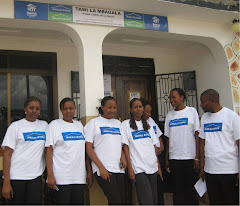
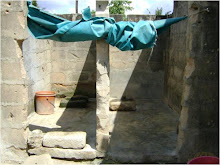

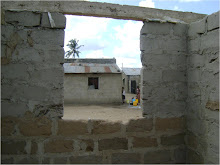
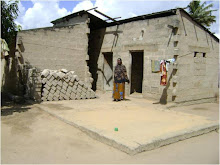
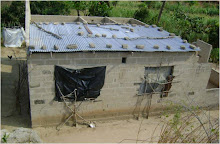
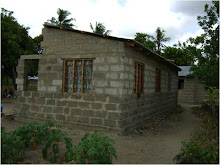

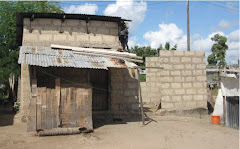






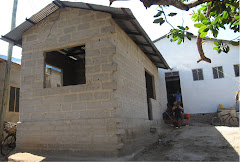.jpg)






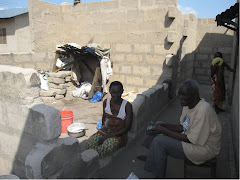
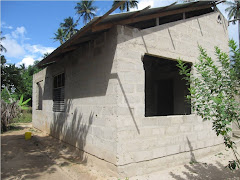

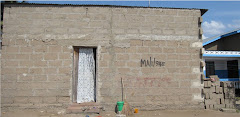

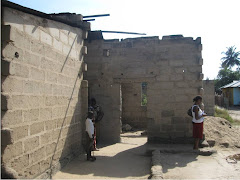













No comments:
Post a Comment